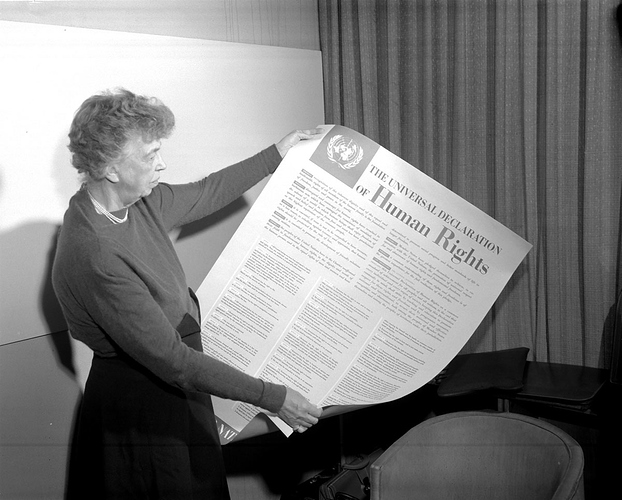In the Boston Review, anthropologist Mark Goodale reviews two recent books that take opposite positions on the value of the human rights paradigm that was adopted by the United Nations and many NGOs in the wake of World War II: Kathryn Sikkink’s Evidence for Hope: Making Human Rights Work in the 21st Century, and Samuel Moyn’s Not Enough: Human Rights in an Unequal World. The former argues that since its inception, the concept of human rights has helped improved the world vastly, while the latter argues that human rights rhetoric is fully compatible with gross inequality. As Goodale notes, the human rights paradigm has in fact received heavy criticism in recent years, with many suggesting that it is Eurocentric and overly reliant and metrics and statistics, which leave out key aspects of human well-being. Here’s an excerpt from Goodale’s review:
Moyn’s argument is that the evolution of human rights into the prevailing legal, political, and moral response to global problems was like a form of genetic engineering in which the very substance of justice-seeking was altered. According to Moyn, with the promulgation of each new human rights instrument, with each successful international criminal prosecution, and, especially, with the transformation of international development into a form of human rights activism, the terms of global justice themselves were being radically altered. From the French Revolution up through the end of the Second World War, most grand projects for global justice had been concerned with equality, particularly material equality. Yet as Moyn argues, human rights more recently had become a framework par excellence for something quite different: sufficiency.
In other words, the international human rights system became a mechanism for bringing the floor up to a set of lowest common denominators defined in international treaties, human development indices, and highly consequential development “goals.” Human rights were concerned with minimal standards of treatment and provision in a world in which such minimal standards were rarely or unevenly met. The key turning point in this transformation was a set of decisions taken in the 1970s and 1980s by leading development economists such as Mahbub ul Haq and Amartya Sen, who ensured that human rights-based development would forever be guided by the proposition that “it was not worth dreaming about a welfare world that was never going to come to pass,” since “individuals suffer now.”
This profound shift away from global equality toward the fight for global sufficiency was, in Moyn’s analysis, both noble and tragically limited. It was noble in that a world in which treatment and provision minimums would be assured would be a much better world in relative terms. But it was a shift with tragic consequences because it said absolutely nothing about the other side—the ceiling—especially for material provision. And it is here where Not Enough leads the critical and ethical heart to beat much faster.
Image via un.org.
